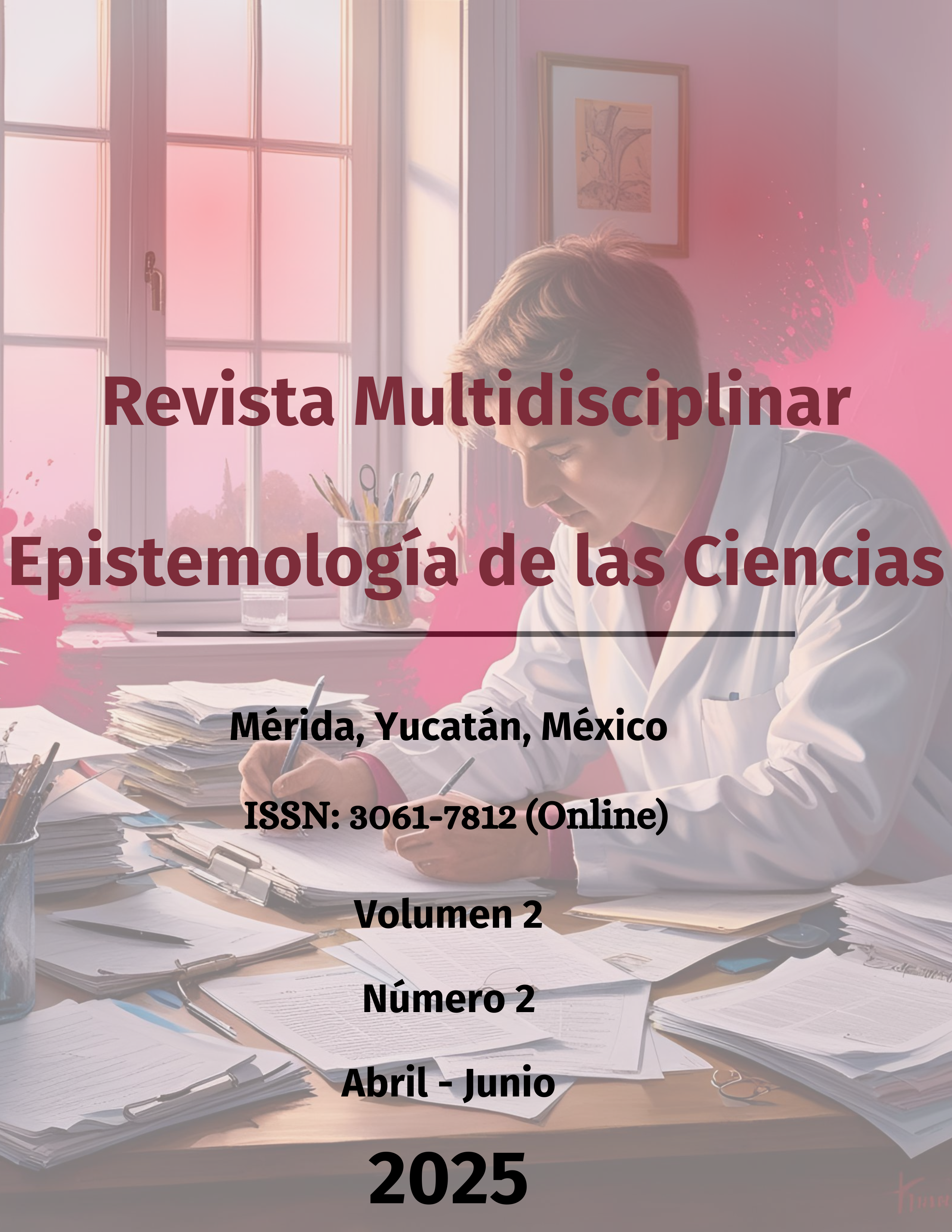Approach to the teaching of humanist knowledge emphasizing values for the achievement of a significant and humane pedagogy in general education
DOI:
https://doi.org/10.71112/91vjjf07Keywords:
humanism, teaching, valuesAbstract
This research is framed within the teaching of humanistic knowledge, emphasizing values as a fundamental axis for achieving meaningful and humanized learning. It allows students to strengthen critical, participatory, and analytical thinking, enabling them to construct an educational vision with a pedagogy focused on love, understanding, and empathy among stakeholders, thus achieving a pedagogy committed to social transformation. It should be noted that the methodology applied in this research was under the interpretive paradigm, using the phenomenological-hermeneutic method. Emphasizing a qualitative approach, the technique used was an in-depth interview through the application of a series of open-ended questions aimed at 5th-year secondary school students, with the aim of promoting more humanized teaching by teachers.
Downloads
References
Bisquerra, R. (1989). Métodos de investigación educativa. Guía práctica. CEAC.
Bogdan, R., & Taylor, S. J. (1984). Qualitative research methods (p. 20). Sage.
Colectivo de autores. (2007). El sistema de trabajo independiente. Adaptaciones curriculares para satisfacer las necesidades de aprendizajes. Pueblo y Educación.
Freire, P. (1973). Pedagogía del oprimido. Educación como práctica de la libertad. Siglo XXI.
Freire, P. (1998). Pedagogía de la autonomía. Siglo XXI Editores.
Freire, P. (2004). Pedagogía de la autonomía: Saberes necesarios para la práctica educativa. Paz e Terra.
Freire, P. (2010). Pedagogía de la esperanza. Un reencuentro con la pedagogía del oprimido. Educación como práctica de la libertad. Siglo XXI.
Hernández, O. (2016). Incluir desde lo amoroso: Una mirada desde la Pedagogía del Amor y la Paz. Ra Ximhai, 12(3), 261–269. http://www.redalyc.org/articulo.oa?id=46146811017 DOI: https://doi.org/10.35197/rx.12.02.2016.17.oh
Lerner, D. (2013). El papel del docente. https://www.uaeh.edu.mx/gaceta/3/numero27/mayo/papel-docente.html
Lincoln, Y. S., & Guba, E. G. (1985). Naturalistic inquiry. Sage Publications. DOI: https://doi.org/10.1016/0147-1767(85)90062-8
López Calva, M. (2001). Educar la libertad: Más allá de la educación en valores (p. 44). Trillas.
López, M. (2012). La escuela inclusiva: Una oportunidad para humanizarnos. Revista Interuniversitaria de Formación del Profesorado, 74(26,2), 131–160. https://www.aufop.com/aufop/uploaded_files/articulos/1396551140.pdf
Martínez, M. (1997). La investigación cualitativa etnográfica en educación: Manual teórico-práctico. Trillas.
Ministerio del Poder Popular para la Educación. (2016). Proceso de transformación curricular en educación media. Documento general de sistematización de las propuestas pedagógicas y curriculares surgidas en el debate y discusión y orientaciones fundamentales. Venezuela.
Pérez, A. (2013). Pedagogía del amor y la ternura. https://antonioperezesclarin.com/2013/11/28pedagogia-del-amor-y-laternura/
Prieto, A. (2013). Pedagogía y prácticas emancipadoras: Actualidades de Paulo Freire. Innovación Educativa (México, DF), 13(63), 155–160. http://www.scielo.org.mx/scielo.php?script=sci_arttext&pid=S1665-26732013000300010
Prieto Figueroa, L. (2005). El humanismo democrático y la educación (Original de 1959). IESALC-UNESCO/Fondo Editorial IPASME.
Taylor, S. J., & Bogdan, R. (1990). Introducción a los métodos cualitativos de investigación. Morata.
Van Manen, M. (2003). Investigación educativa y experiencia vivida: Ciencia humana para una pedagogía de la acción y la sensibilidad. Idea Books.
Velásquez, E. (2017). El amor y el ejemplo en la pedagogía escolar. Aporrea. https://aporrea.org/educacion/a241626.html
Downloads
Published
Issue
Section
License
Copyright (c) 2025 Multidisciplinary Journal Epistemology of the Sciences

This work is licensed under a Creative Commons Attribution 4.0 International License.








